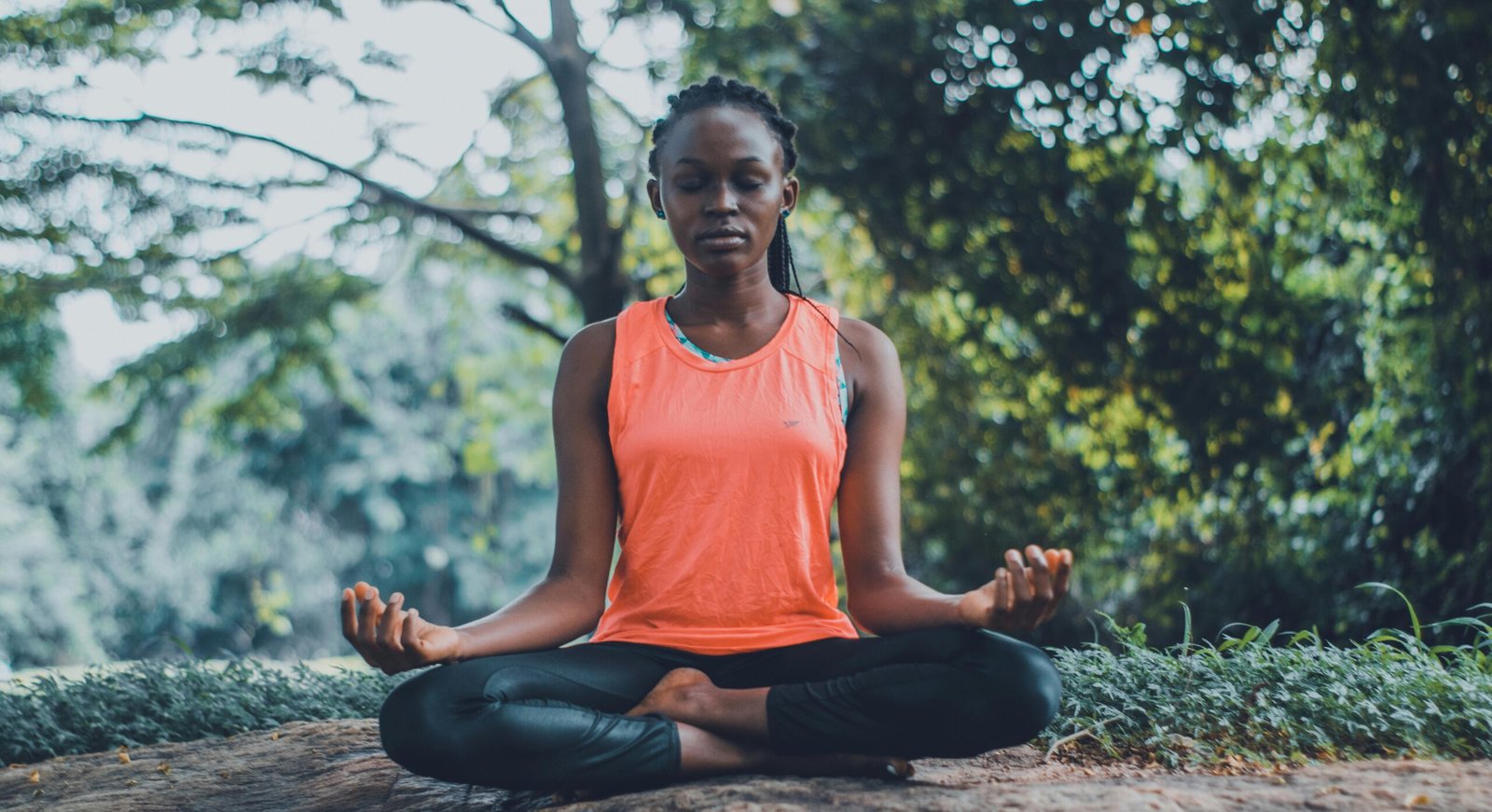Building confidence and overcoming self-doubt is not an overnight process, but it’s an incredibly rewarding journey. Confidence shapes how we perceive ourselves and how others perceive us. It’s a trait that allows us to tackle challenges, take risks, and achieve personal and professional goals. Unfortunately, many people struggle with self-doubt, which can hold them back from reaching their full potential. In this guide, we’ll explore practical steps that can help you build confidence and silence the voice of self-doubt.
1. Recognizing the Roots of Self-Doubt
Self-doubt often begins deep within our thoughts, and recognizing its roots is the first step in overcoming it.
Common Causes of Self-Doubt
Self-doubt often arises from past experiences, societal pressures, or negative comparisons to others. It may stem from childhood experiences, past failures, or even current insecurities. These feelings can be amplified by the media, social media, or the unrealistic expectations placed on us by others.
How Self-Doubt Affects Your Life
Self-doubt doesn’t just make you second-guess your abilities—it can also prevent you from taking action, make you anxious, and limit your growth. When you doubt yourself, you hesitate, which leads to missed opportunities and stunted progress. It’s important to understand that self-doubt is a mental barrier, not an irreversible fact.
2. The Power of Positive Thinking
Changing your mindset can work wonders when it comes to building confidence.
Replacing Negative Thoughts with Positive Ones
The way you think about yourself influences how you act. Replacing negative thoughts with positive affirmations can change your mindset from self-doubt to self-assurance. Instead of thinking “I can’t do this,” replace it with “I am capable and confident.”
Practicing Self-Affirmations
Self-affirmations are powerful tools that can help rewire your brain. Repeating phrases like “I am worthy,” “I believe in myself,” or “I am confident” will slowly build up your self-belief and challenge your inner critic.
Why Positive Thinking Works
When you practice positive thinking, you begin to train your brain to focus on your strengths rather than your weaknesses. Positive thoughts create a feedback loop that boosts your confidence and helps you move forward with greater ease.
3. Setting Achievable Goals to Build Confidence
Confidence isn’t just about thinking positively—it’s also about action.
Start Small: Focus on Bite-Sized Goals
Start with small, manageable goals that allow you to experience success early on. These small victories build momentum and provide evidence that you can accomplish things, which in turn boosts your confidence.
Track Your Progress
Keeping track of your goals and noting your progress helps you stay motivated. Whether it’s writing down achievements or marking them on a calendar, visualizing your progress reinforces your growing confidence.
Celebrating Small Wins
Every little victory counts. Celebrate them! Whether it’s completing a task or overcoming a fear, acknowledging your progress will remind you that you’re capable of more than you think.
4. Embracing Failure as Part of Growth
Fear of failure often keeps us stuck in a cycle of self-doubt. However, failure is an essential part of growth.
Learning from Mistakes
Failure is not the end—it’s an opportunity to learn. Every mistake holds valuable lessons that help you improve. Instead of feeling defeated, ask yourself: “What can I learn from this?”
Reframing Failure as a Learning Experience
Shift your perspective on failure. Instead of viewing it as a negative experience, see it as a stepping stone toward growth. Understanding that failure is temporary and part of the journey helps you stay resilient.
The Role of Resilience
Resilience is your ability to bounce back after setbacks. It’s a skill that can be developed by embracing challenges, learning from failures, and not letting them define your worth.
5. Strengthening Your Body and Mind
Physical well-being directly impacts mental well-being. Boosting your physical health can lead to increased confidence.
The Link Between Physical Health and Confidence
Exercise is not only good for your body—it’s also great for your mind. When you exercise, your body releases endorphins, which improve mood and reduce stress. Feeling strong and healthy boosts self-esteem and encourages confidence.
Exercises That Boost Mental Well-Being
Yoga, meditation, and cardiovascular exercise are particularly beneficial for building mental resilience. These exercises reduce anxiety, enhance focus, and create a positive mindset.
Why Exercise Plays a Key Role in Confidence
Exercise helps you take control of your body, which in turn builds confidence. When you feel strong and capable physically, it’s easier to project those feelings into other aspects of your life.
6. Surrounding Yourself with Positivity
The people you interact with play a significant role in your confidence levels.
Building a Supportive Circle
Surround yourself with positive, supportive people who believe in you. Their encouragement will help combat self-doubt and remind you of your strengths when you can’t see them yourself.
Avoiding Negative People
Negative people can drain your energy and reinforce self-doubt. It’s important to distance yourself from those who bring you down, and instead, seek out individuals who lift you up and inspire confidence.
The Impact of Social Media on Confidence
Social media can amplify self-doubt by promoting unrealistic standards. Limit your exposure to accounts or platforms that make you feel inadequate. Instead, curate your feed with inspiring, motivational content.
7. Practicing Self-Compassion
Being kind to yourself is a game-changer when it comes to building confidence.
Treating Yourself with Kindness
Self-compassion involves treating yourself with the same care and kindness you would offer a friend. Instead of criticizing yourself for mistakes, practice self-praise and gentle encouragement.
The Importance of Self-Forgiveness
Everyone makes mistakes. The key is to forgive yourself and move on. Self-forgiveness is a crucial part of building confidence because it frees you from the weight of guilt and shame.
Why Self-Compassion is Crucial for Confidence
When you’re compassionate with yourself, you’re able to move forward with confidence. Instead of holding onto self-criticism, self-compassion helps you embrace who you are and what you’ve achieved.
8. Taking Action: The Confidence Boosting Power of Doing
Confidence is built through action. The more you act, the more you’ll feel confident.
Stepping Out of Your Comfort Zone
Growth happens when you push yourself outside of your comfort zone. Start small—take on tasks that challenge you, and with each successful attempt, your confidence will grow.
Small Actions Lead to Big Results
Taking even small actions every day will lead to significant results. Whether it’s having a difficult conversation, trying a new hobby, or tackling a project at work, every step forward builds your confidence.
Embracing Courage Over Comfort
Courage doesn’t mean lack of fear—it means acting despite fear. The more you act with courage, the more your confidence will naturally grow.
9. Improving Your Self-Talk
Your internal dialogue has a powerful effect on how you view yourself and your abilities.
Becoming Aware of Your Inner Critic
Take note of your thoughts. Are they negative or positive? When you notice negative self-talk, challenge it by asking, “Is this really true?” Recognizing your inner critic is the first step to changing it.
Changing Your Internal Dialogue
Instead of thinking, “I can’t do this,” replace it with, “I am capable and I will try my best.” Over time, these positive affirmations will change the way you perceive yourself.
The Power of Positive Self-Talk
Positive self-talk boosts self-confidence and encourages a growth mindset. When you consistently practice speaking kindly to yourself, you begin to believe in your abilities.
10. Visualization Techniques for Confidence
Visualization is a powerful technique that can help you feel more confident in challenging situations.
The Science Behind Visualization
Visualization works because the brain doesn’t distinguish between real and vividly imagined experiences. By visualizing yourself succeeding, your brain prepares you for success, which increases confidence.
Using Visualization to Achieve Goals
Visualize yourself achieving your goals—whether it’s acing an interview, performing well in a public speaking event, or completing a project. This mental practice boosts your self-assurance and prepares you to face challenges head-on.
Practical Tips for Effective Visualization
Set aside a few minutes each day to close your eyes and vividly imagine your success. The more detailed and positive the imagery, the more effective it will be in boosting your confidence.
11. Dressing for Confidence
How you dress affects how you feel about yourself.
How Your Appearance Affects Your Mindset
When you look good, you feel good. Dressing in a way that makes you feel confident and comfortable will automatically boost your self-esteem.
Dressing to Feel Empowered
Choose clothing that fits well and expresses your personality. Wearing clothes that make you feel powerful and comfortable can enhance your confidence in any situation.
The Psychological Effect of Clothing
Research shows that what we wear influences our behavior and mindset. Dressing well can increase feelings of self-worth and help you project confidence to the world.
12. Building Confidence Through Communication Skills
Effective communication is key to expressing confidence.
The Importance of Clear, Confident Communication
When you speak clearly and confidently, others take you seriously. Practice articulating your thoughts in a calm, assured manner, and pay attention to body language.
Practicing Assertiveness
Being assertive doesn’t mean being aggressive. It means expressing your opinions confidently while respecting others. Assertive communication builds trust and demonstrates self-assurance.
Role-Playing for Improved Confidence
Practice conversations in low-stakes situations. Role-playing helps you prepare for more challenging moments, such as public speaking or difficult discussions.
13. Avoiding Perfectionism
Perfectionism is a major roadblock to building confidence.
The Dangers of Striving for Perfection
Perfectionism often leads to self-doubt because nothing ever seems “good enough.” It also prevents you from moving forward, as you keep revising and rethinking instead of taking action.
Learning to Accept Imperfections
Embrace the fact that perfection is unattainable. Instead, focus on doing your best and accepting imperfections as part of the journey.
Progress Over Perfection
Aim for progress, not perfection. Each step forward, even if imperfect, is a victory and contributes to building confidence.
14. Using Mindfulness to Build Confidence
Mindfulness enhances your awareness and helps manage self-doubt.
The Role of Mindfulness in Self-Awareness
Mindfulness helps you stay present and focused on the task at hand, reducing anxiety about the future. Practicing mindfulness allows you to manage negative thoughts and self-doubt.
Practicing Mindfulness to Overcome Negative Thoughts
Engage in mindfulness practices, such as meditation or deep breathing, to silence your inner critic and refocus on the present moment.
Techniques to Incorporate Mindfulness into Daily Life
Start by setting aside a few minutes each day for mindful breathing or a quick meditation session. This practice helps clear your mind, refocus your energy, and promote confidence.
15. Conclusion: Embrace Your Inner Confidence
Building confidence and overcoming self-doubt is an ongoing journey, but it’s absolutely achievable. By practicing positive thinking, embracing failure, and taking action, you can develop lasting self-assurance. Every step you take builds your confidence, and over time, you’ll begin to see the changes in your life. So embrace your inner confidence—because you are worthy of success, happiness, and all the possibilities life has to offer.
5 Unique FAQs
- What is the first step to building confidence?
Start by recognizing the root causes of your self-doubt. Once you identify them, challenge those thoughts and replace them with positive affirmations. - How can I overcome negative self-talk?
Pay attention to your inner dialogue and replace negative thoughts with positive ones. Practice self-compassion and remind yourself of your strengths. - How do I deal with failure when trying to build confidence?
See failure as a learning experience, not a setback. Embrace mistakes, learn from them, and move forward with greater resilience. - Can exercise really help improve my confidence?
Yes! Regular physical activity boosts endorphins, improves mental health, and enhances your sense of self-worth, all of which help build confidence. - How do I surround myself with positivity in my day-to-day life?
Build a support system of encouraging people, limit negative influences, and curate your social media feed with positive and inspiring content.





